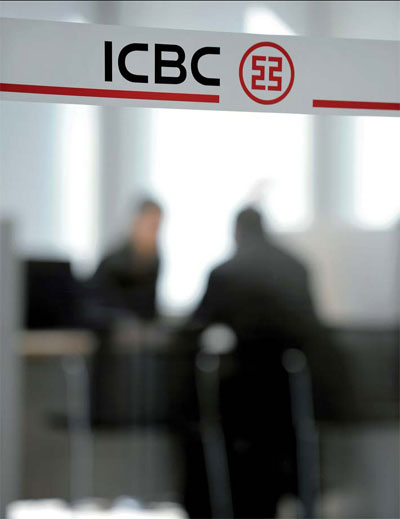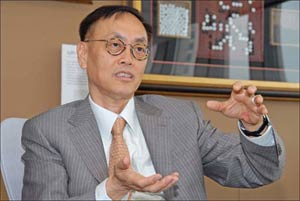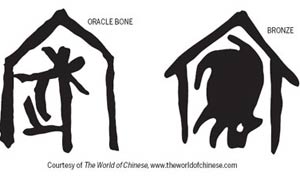US crisis provides growth opportunity
Updated: 2011-10-14 08:54
By David Lariviere (China Daily)
|
|||||||||
|
ICBC is expanding into overseas markets through acquistions. Provided to China Daily |
When the crippling financial crisis struck the United States in the fall of 2008 and continued into the winter of 2009, Industrial and Commercial Bank of China Ltd (ICBC) had just been issued a banking license in New York for its first operational entity in North America.
The timing could not have been more perfect. In February 2009, the New York branch officially opened for business. "I was responsible for the corporate banking business back in 2009 and shifted the focus to (top-tier) companies," Bi Mingqiang, general manager of ICBC New York branch, recalls. Those companies included General Electric Co, Southwest Airlines Co, Wal-Mart Stores Inc, Pfizer Inc and other Fortune 500 firms.
"We used to concentrate, like others, on Chinese companies. But during the financial crisis, currency was tight (for the US banks) and we saw opportunities there. We contacted the top-tier companies and found that they needed credit," says Bi, who was CEO of ICBC's Canada subsidiary before coming to New York in June.
"Some of their banking partners had gone bankrupt, like Lehman Brothers. The other thing is, these top-tier companies used to work mostly with European or American-funded banks. And they discovered themselves that Asian banks were much less affected during the financial crisis. So we quickly hit it off."
In its first official year of business in the US, ICBC made $1 million in net profit but, in 2010, the bottom line jumped to $20 million. With three months left in 2011, the forecast is for $30 million in profit.
The original ICBC New York office was opened on July 23, 1997 as a representative office, which is not allowed to conduct any business. But, in 2005, the Chinese government began to push its "going-out" policy encouraging Chinese companies to invest overseas.
"The bigger background of ICBC is that around 96 percent of our assets were in China," Bi says, noting that there was a very big demand to diversify the bank's portfolio by expanding overseas.
The expansion has been rapid. In January, the firm opened five branches in five European countries, followed by two new branches in Pakistan and another in India. It also announced the acquisition of Bank of East Asia Ltd's US operations and another bank acquisition in Argentina which has more than 100 branches. "We don't want to lose clients so we have to follow them," Bi explains.
"We are acquiring Bank of East Asia for their license to do personal banking (in the US). We don't have it now and cannot help overseas students and immigrants with their personal business," Bi says. "Bank of East Asia was only a retail bank before. The $700-million banking enterprise was at best a community bank when ranking with the 8,000 to 9,000 banks nationwide. It has a 190-person staff and 13 branches across America. But we need their license of personal banking. Once we've acquired it, we will be able to provide savings service."
Localized banking will be another important challenge for ICBC, according to Bi, and will involve finding the right people. "We need very experienced teams who know the local market but also understand Chinese philosophy and can speak Mandarin or Cantonese. It's not that easy to find that expertise but we'll do our best to catch up. So far, so good," Bi says.
Currently, ICBC's New York branch has nine departments and approximately 50 highly-skilled financial, business and marketing professionals, focusing on wholesale banking business.
The bank's wholesale business is divided into three major sections: corporate banking, clearing and settlement of US dollar payments and trading desk business.
"The most important one is corporate banking," Bi says. "We target medium- to large-sized companies, especially those have ties with China. We do corporate lending, syndication, trade financing and cross-border settlements, which contribute to more than half of our revenue."
ICBC New York is a first-rate clearing bank, according to Bi. "We started clearing in the second half of 2009, and now most transactions are from the group. This contributes to half of the procedural fee revenues. The targeted customers include small agent banks."
There are two aspects of the trading desk business: currency management, money market investment and offering short-term loans; the other, which is more important, is doing global trading on behalf of ICBC headquarters. "Now, ICBC is building up a 24-hour operation global trading system. In Asia, it's Beijing and Hong Kong. In Europe, it's London. In America, it's New York - eight hours in each zone, so that we have 24-hour trading," Bi says.
"We are now doing foreign exchange trading, gold and silver trading. In the future there will be bond and derivative instruments trading," Bi adds.
"We are also providing renminbi services for our clients," says Bi, who was extremely optimistic about the currency's future. "There is no doubt that it will become an international currency. But before that, it will firstly become a regional one. In fact, it's already used in regional trading in Asia.
"If the renminbi is facing one challenge right now, it's lacking (financing) instruments. It should be means of storage as well as a way to settle accounts. We're a little slow in this," Bi says.
Bi does not see the renminbi as a threat to the US dollar. "I don't think the US dollar can be replaced, but if we add another one, it gives us more options as an alternative for cross-border settlements. It's a good choice," he says.
Despite tepid growth this year, Bi says he is not too concerned about the strength of the US economy. "In general, I am confident with the fundamentals of the US economy. Though the financial markets are tough right now, the real economy, which is the base of finance, hasn't been impaired much," he says.
"If the United States wants to, it can go back to be the bellwether of industrial production. And if the confidence of the economy picks up, financial markets will recover too," Bi states.
"I've also talked to CFOs of some major American companies since I came back to New York. The general feeling is that they're not pessimistic. There are several companies that hold several billion (dollars) in stocks. I think the general economic climate is quite good."
Not even the downgrade of US treasuries by Standard & Poor's after the near government default in August affected Bi's view. "Personally, I haven't seen any big change. I don't think the so-called downgrade sends a very strong signal that the US going bad," says Bi. "There are plenty of ratings agencies that still list the US at AAA. I'm quite confident of America's fundamentals."
(China Daily 10/14/2011 page17)










